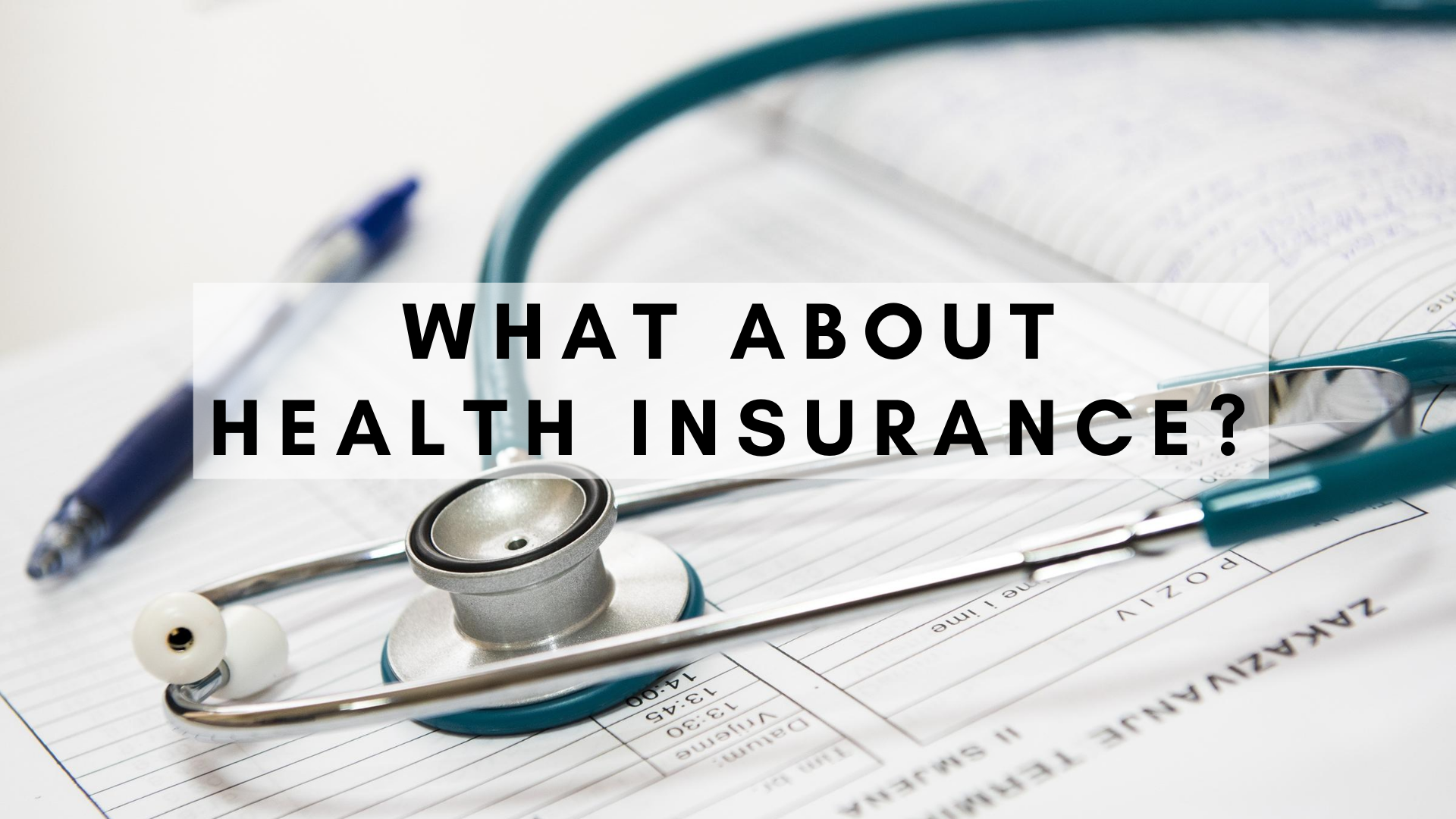Health Insurance

Disclosure: Post may contain affiliate links, meaning we earn a small commission if you make a purchase, at no cost to you. As an Amazon Affiliate, we earn from qualifying purchases.
Over the next three posts I’ll expand on three topics that hang people up and make them think that early retirement is impossible to achieve.
- Part 1: Health Insurance
- Part 2: College
- Part 3: How to access your retirement money early
This week we’ll take on health insurance. Not that we’re experts, but I’ll discuss what our specific plans are to bridge the gap between our current workplace retirement plan and Medicare (what people who retire normally at 65 use).
COBRA
COBRA ( the Consolidated Omnibus Budget Reconciliation Act) gives you the option to continue your employer provided health insurance after leaving your company. This has limitations (like it only lasts 18 months from the end of your day job). It is also expensive as you are paying your employer’s portion of the premium as well as the portion you were paying.
ACA
The Affordable Care Act (or Obamacare) provides a range of health insurance options at healthcare.gov or your state’s healthcare exchange website. It can be expensive (depending on your income), but subsidies kick in based on your income. So, unless you’re doing quite well, it becomes more affordable the lower your income, especially for early retirees.
Private (off exchange) Health Insurance
Again, these may be expensive options. They are not listed on the ACA exchanges because they have aspects of their plan that do not comply with the ACA certification rules.
Health Sharing Ministries
There are a number of these available. They are faith-based organizations that you pay a premium into and they pay medical expenses. These include organizations such as Medi-Share, Samaritan Ministries, Christian Healthcare Ministries, and Liberty Healthshare. They typically require a statement of faith and come with lifestyle restrictions for insurance needs, like alcohol or drug abuse treatment. They have different deductibles, caps, rules for pre-existing conditions, and ways that bills are payed out. For a comparison chart, check this one out at Citizen’s Council for Healthcare Freedom.
Get a Side Job That Provides Health Insurance
This may be an unpopular opinion as many people see early retirement as never working again, but working a part time or passion job that provides health insurance during early retirement may be a very good option. Famously, Starbucks provides health insurance to their part time employees which birthed the idea of “BaristaFI”. As you’ll read below, this is part of our plan for healthcare in one phase of our early retirement before Medicare kicks in at 65.
Medial Tourism or Expat Insurance
This is where you travel to another country and pay out of pocket for their cheaper healthcare. This sounds scary to us, but if you already have plans for extended world travel during your retirement, this may be your best option. You can get insurance in the country you are going to reside or pay out of pocket for your medical needs. This is usually quite inexpensive by American standards.
Make Healthy Choices
This may not seem like it needs to be said, but it is key to our early retirement plan. Living a healthy, active lifestyle is one way of staying out of the doctor’s office and having fun in early retirement.
So, what is our plan?
As of today, this is our FIRE plan for healthcare:
- The Affordable Care Act. When I quit my day job, it will be mid-year in 2022. Because my W-2 will only reflect half a year’s salary, our ACA premiums should be lower than trying to stay on COBRA. The first year and a half of early retirement (2022-2023) we will be using ACA (hopefully with low premiums based on our expected lower income in those years). Financial Samurai has some awesome tables showing what you can expect to pay for ACA insurance based on a variety of income levels.
- BaristaFI. We’ve talked about CoastFI or BaristaFI before (from an income/savings/compound interest perspective), but it is also our plan for future healthcare. When we return from our Great Loop adventure, we intend to do some work. One idea is to work for the school district driving a school bus (not too many hours, time off in the middle of the day to side hustle, lots of school holidays off, summers off to boat, and GREAT health insurance). Our current plan would be to work at that (or similar) for a bit of income, but, more importantly, to cover health insurance for our family in 2024 and beyond.
- All the while, it’s important for us to make healthy choices and stay fit. Lowering our need for heavy healthcare will lead to a lighter, more care-free life, which is one of the things we seek in early retirement.
The need to work a job for healthcare benefits until medicare kicks in is a limiting belief that was passed down to me from my parents because, in their generation, that was the case. Now, with the affordable care act, no pre-existing condition exclusions by law, we have options. Some are more expensive than others but not having workplace provided healthcare is no longer a death sentence. I’m glad to be free of that limitation but will have to admit, just because I’ve held those beliefs for so long, that I’m a little nervous about this one. All our research has shown that this is totally possible, however.
What do you plan to do for health insurance in early retirement?


